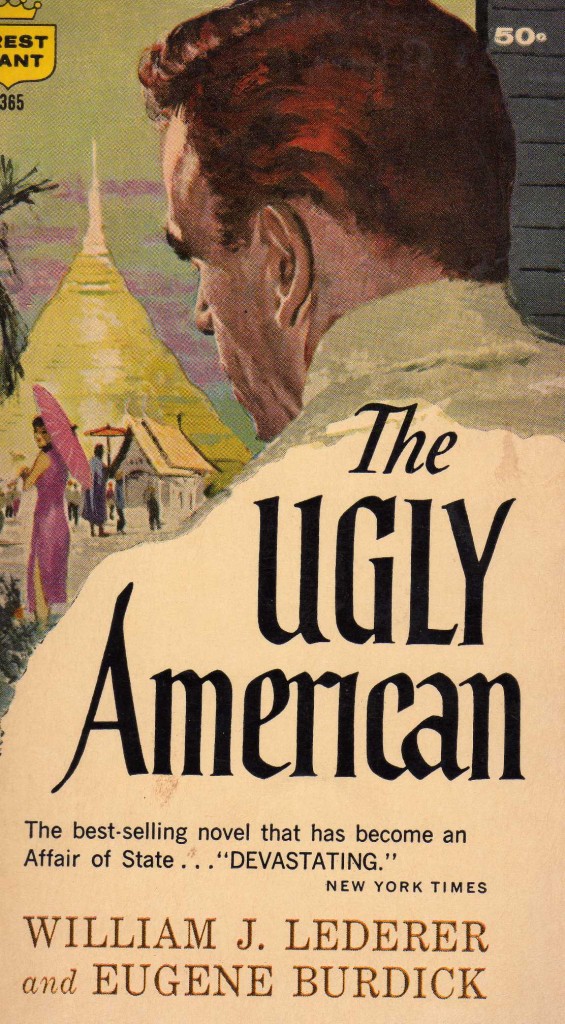Good writing can take you far. Every international job, whether you’re behind a desk in DC or in the field in Uganda, requires solid writing. Sherry constantly mentions superior writing skills as one of the primary criteria she looks for in a new employee. But how do you demonstrate to a potential employer that you’re a strong writer?
In our recent IA Forum interview, Sherry and I discussed the idea of being published as a way to demonstrate writing skills. As Sherry said:
To see something published or that someone was an editor of a graduate school journal, that carries weight with me. I’ll pay more attention to that resume than a similar one without writing/editing experience.
Certainly I agree with Sherry’s thought here (if you can get published, definitely do it), but I would also add (and, in fact, did add in the IA Forum interview) that it’s not necessary to get published to demonstrate your writing skills (I was never published until WW). So how do you demonstrate those writing skills, if not by being published?
Alanna at Global Health says that you should mention your writing skills and experience in your resume and cover letter, “and then give an example or two of when your writing has been valuable to an employer.” Certainly there’s nothing wrong with telling a potential employer that you have good writing, but any time I’ve seen something like this on a resume, it’s invariably struck me as a bit empty. I think, ‘Why are you telling me? Just show me.’ While certain skills or experiences can only be conveyed to an employer by telling them (if you’re fluent in Arabic or spent two years in the Philippines on a field project, there’s no way to demonstrate this in a job application; you just have to say it), writing is one of the few skills in a job application process that can actually be shown rather than just said.
Alanna does say, “Make sure your cover letter and your resume are good enough to stand up to your claim.” But I think you need to take it a step or two further. True, your resume isn’t really the ideal format for showcasing your long-form writing, but absolutely ensure that it is clean, precise, and without error. Your cover letter, on the other hand, does present you with an opportunity to show your writing ability. Too often job applicants make the mistake of believing a cover letter is a place to regurgitate the experiences listed on their resumes. Instead, the cover letter should be a place in which you weave a story about you—who you are, what you’ve done, and what has brought you to this point at which you are applying for this particular job with this particular organization. Don’t restate your resume; rather, interpret your resume. Bring it all together for the person or people who will be looking at your application—do the hard work for them. This type of cover letter is not only more effective in conveying why you are a solid applicant for this job, but it also gives you a chance to showcase your writing in a more dynamic way than if you simply re-listed all of your previous experiences. (Certainly telling the “story of you” in a brief, one-page cover letter is difficult, but if you do it effectively, this even further showcases your writing skills.)
In addition to your initial contact with a potential employer, any and all of your follow up contact is yet another chance to display your writing skills. Follow-up email contact illustrates the way you write in a day-to-day professional context—the way you compose an email to follow up on a job application is a good indication of how you will compose your emails for this job should they decide to hire you. So, take the time to ensure that your follow-up correspondence is well-written and mistake-free. At my previous job at Georgetown, the person who hired me later told me that when my application initially came in, it went into the “maybe” pile. When I sent a follow up email, however, reiterating my interest in the position and asking where things stood, this colleague said he really liked the tone of that message and the way I composed it, so he decided to give me a second look. He liked what he saw on second glance, moved me into the “interview” pile, one thing led to another, and I got the job.
Two last ways to showcase your writing: 1) if asked for a writing sample, think carefully about what you send. Don’t simply splice a three page section of a paper from college and send that if you don’t truly believe it represents your best work. If you don’t have something already prepared, consider writing something fresh (an op-ed type piece) that relates to the job you’re applying for. 2) If you’re interning or volunteering for an organization you’d like to work for someday, make sure ALL of the writing you do there (even emails) is your best. If you think of an internship or volunteer stint as a three-month interview, you’ll set yourself up very well to succeed when it comes time for the actual interview.



